Developmental Robotics for Language Learning, Trust and Theory of Mind
Angelo Cangelosi (University of Manchester)
Abstract
Growing theoretical and experimental research on action and language processing and on numberlearning and gestures clearly demonstrates the role of embodiment in cognition and languageprocessing. In psychology and neuroscience, this evidence constitutes the basis of embodied cognition, also known as grounded cognition (Pezzulo et al. 2012). In robotics and AI, these studies have important implications for the design of linguistic capabilities in cognitive agents and robots for human-robot collaboration, and have led to the new interdisciplinary approach of Developmental Robotics, as part of the wider Cognitive Robotics field (Cangelosi & Schlesinger 2015; Cangelosi & Asada 2022). During the talk we will present examples of developmental robotics models and experimental results from iCub experiments on the embodiment biases in early word acquisition and grammar learning (Morse et al. 2015; Morse & Cangelosi 2017) and experiments on pointing gestures and finger counting for number learning (De La Cruz et al. 2014). We will then present a novel developmental robotics model, and experiments, on Theory of Mind and its use for autonomous trust behavior in robots (Vinanzi et al. 2019, 2021). The implications for the use of such embodied approaches for embodied cognition in AI and cognitive sciences, and for robot companion applications will also be discussed.
Angelo Cangelosi’s Short Bio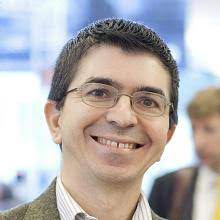
Angelo Cangelosi is Professor of Machine Learning and Robotics at the University of Manchester (UK) and co-director of the Manchester Centre for Robotics and AI. He also is Turing Fellow at the Alan Turing Institute London, Visiting Professor at Hohai University, and Visiting Distinguished Fellow at AIST-AIRC Tokyo. His research interests are in cognitive and developmental robotics, language grounding, human robot-interaction and trust, and robot companions for health and social care. Overall, he has secured over £35m of research grants as coordinator/PI. Cangelosi has produced more than 300 scientific publications. Cangelosi is Editor of the journals Interaction Studies and IET Cognitive Computation and Systems, and in 2015 was Editor-in-Chief of IEEE Transactions on Autonomous Development. His book “Developmental Robotics: From Babies to Robots” (MIT Press) was published in January 2015, and recently translated in Chinese and Japanese. His latest book “Cognitive Robotics” (MIT Press), coedited with Minoru Asada, was recently published in 2022.
Interdisciplinarity of Data Science and AI: Driving Innovation and Advancing Societal Impact
Nitesh Chawla (University of Notre Dame)
Abstract
The ubiquity of AI and data science is spurred by significant factors, including 1) major methodological and computational advances; 2) the increasing availability of problem statements in sciences, engineering, business and the social sciences; and 3) an increasing demand from academia, research institutions, corporations, and governments for talent. This is presenting unparalleled opportunities to accelerate scientific discovery, innovation and translation. In this talk, I’ll present elements of our research program and vision that is centered on the principles of data & society, including partnerships, fostering innovation in data science and AI while generating educational opportunities, societal impact, and entrepreneurship.
Nitesh Chawla’s Short Bio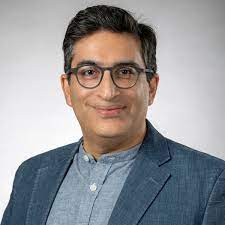
Nitesh Chawla, PhD is the Frank M. Freimann Professor of Computer Science and Engineering at the University of Notre Dame and the Founding Director of the Lucy Family Institute for Data and Society. He is a Fellow of IEEE and Fellow of the Asia Pacific Association for Artificial Intelligence (AIAA). He is an expert in artificial intelligence, data science, and network science, and is motivated by the question of how technology can advance the common good through interdisciplinary research. He has published over 250 papers receiving more than 44,000 citations and an h-index of 70. He is the recipient of multiple awards for research and teaching innovation including outstanding teacher awards (2007 and 2010), a National Academy of Engineers New Faculty Fellowship, and a number of best paper awards and nominations. He also is the recipient of the 2015 IEEE CIS Outstanding Early Career Award; the IBM Watson Faculty Award; the IBM Big Data and Analytics Faculty Award; the National Academy of Engineering New Faculty Fellowship; Rodney F. Ganey Community Research Award; and the 1st Source Bank Technology Commercialization Award. He is also the co-founder of Aunalytics, a data science software and cloud computing company.
Combating (Neural) False Information
Lee Dongwon (Pennsylvania State University)
Abstract
The recent world-wide rise of diverse types of “false information” (that may include rumor, clickbait, misinformation, or disinformation) has caused significant confusion and disruption in societies. In addition, the recently-emerged phenomenon of “deepfakes” (AI-synthesized realistic artifacts) and other neural fakes have exacerbated the problem even further. In this talk, I will first present a review on the state-of-the-art computational solutions from my group as well as other leading groups that attempt to combat this false information and deepfakes using AI framework. I will next discuss about the important implications and impacts of “neural” false information and deepfakes in diverse applications, and conclude with final thoughts, emphasizing the needs of interdisciplinary and transdisciplinary approaches to this very challenging and important problem.
Lee Dongwon’s Short Bio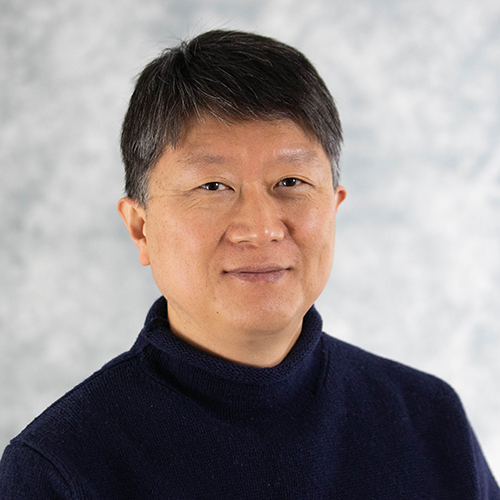
Dongwon Lee is a professor in the College of Information Sciences and Technology (a.k.a. iSchool) of The Pennsylvania State University, USA. He mostly works in the intersection of Data Science, Machine Learning and Cybersecurity, and their social applications and security implications. In recent a few years, in particular, his research has focused on the study of mis/disinformation and other forms of cyber frauds/fakes. He is an ACM distinguished member elected in 2019. Before starting at Penn State, he has worked at AT&T Bell Labs and obtained his Ph.D. in Computer Science from UCLA. From 2015 to 2017, he has also served as a program director at NSF, co-managing cybersecurity education and research programs of national priorities with the yearly budget of $55M.
He currently leads the PIKE (Penn State Information Knowledge and web) research group.
He currently leads the PIKE (Penn State Information Knowledge and web) research group.
MiniCoDe – Minimise algorithmic bias in Collaborative Decision Making with Design
Alessio Malizia (University of Pisa)
Abstract
Alessio Malizia’s Short Bio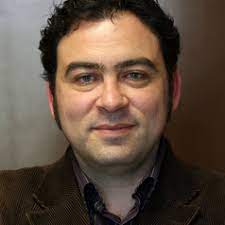
I am Associate Professor at the Computer Science Department, University of Pisa, Italy. I lived in London but I am a “global soul” and have been living in Italy, Spain and US. I am the son of a blacksmith, but thereafter all pretensions of manual skills end. I began my career as a bearded computer scientist at Sapienza – University of Rome and then, after an industrial experience in IBM and Silicon Graphics, moved on with my career in research. I was visiting researcher at the Xerox PARC where I was appreciated for my skills in neural networks (Multilayer Perceptrons) and as peanut butter and chocolate biscuits eater. I worked as associate professor (and Spanish tapas aficionado) at the University Carlos III of Madrid. I was senior lecturer at Brunel University London for five years where I was teaching and playing videogames. From 2017 I joined the University of Hertfordshire.as Professor of User Experience Design and distinguished speaker of the ACM (the international Association for Computer Machinery).
My research and teaching interests focus on Human-Centred Systems. I am interested in Human-Centred AI and Design Fictions.
In my role at University of Pisa, I am keen to develop novel approaches and attract funding for improve scientific methods to study Human-Artificial Intelligence Interaction.
My research and teaching interests focus on Human-Centred Systems. I am interested in Human-Centred AI and Design Fictions.
In my role at University of Pisa, I am keen to develop novel approaches and attract funding for improve scientific methods to study Human-Artificial Intelligence Interaction.
Lifelong Learning from Video Streams
Stefano Melacci (University of Siena)
Abstract
Stefano Melacci’s Short Bio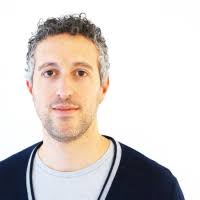
I am Stefano Melacci, Associate Professor at the Department of Information Engineering and Mathematics (DIISM), University of Siena, Italy. My reaseach activity is fully focussed on Machine Learning and, more generally, Artificial Intelligence – foundations and applications, mostly in the context of Computer Vision and Natural Language Processing.
I am (proud to be) a member of the Siena Artificial Intelligence Laboratory (SAILab).
I am (proud to be) a member of the Siena Artificial Intelligence Laboratory (SAILab).
Boltzmann Machines, a statistical mechanics perspective
Emanuele Mingione (University of Bologna)
Abstract
Emanuele Mingione’s Short Bio
Emanuele Mingione graduated in Theoretical Physics in 2012 at the Università La Sapienza di Roma and received the PhD in Mathematics in 2015 at the University of Bologna. It holded a research position at the University of Bologna (2016 -2019) and the EPFL (2019-2020). He is currently senior researcher in Mathematical Physics at the University of Bologna. His experience includes visiting at NYU Shangay, University of Alabama, IHP and the role of Principal Investigator of the Almaidea Project 2018-2021.
His main research topic are complex systems, in particular he is interested in the application of spin glass methods to characterize high dimensional inference problems and Deep Boltzmann Machines.
His main research topic are complex systems, in particular he is interested in the application of spin glass methods to characterize high dimensional inference problems and Deep Boltzmann Machines.
Social Artificial Intelligence
Luca Pappalardo (University of Pisa)
Dino Pedreschi (University of Pisa)
Abstract
Luca Pappalardo’s Short Bio
Born in Salerno (Italy), I earned my PhD in Computer Science at University of Pisa with the thesis “Human Mobility, Social Networks and Economic Development: a Data Science perspective”.
In my research, I exploit the power of Big Data to study many aspects of human behavior: the patterns of human mobility, the structure and evolution of complex networks, the patterns of success in sports, and the usage of data-driven measures of human behavior to monitor and predict the economic development of countries, cities, and territories.
In my research, I exploit the power of Big Data to study many aspects of human behavior: the patterns of human mobility, the structure and evolution of complex networks, the patterns of success in sports, and the usage of data-driven measures of human behavior to monitor and predict the economic development of countries, cities, and territories.
Dino Pedreschi’s Short Bio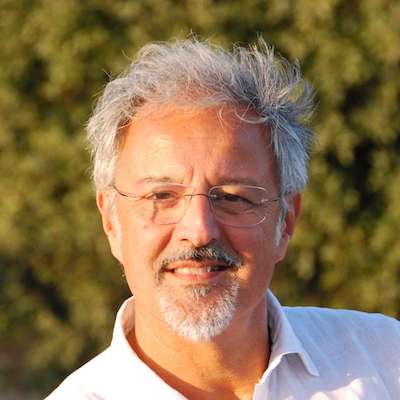
Dino Pedreschi is a professor of computer science at the University of Pisa, and a pioneering scientist in data science and artificial intelligence. He co-leads the Pisa KDD Lab – Knowledge Discovery and Data Mining Laboratory http://kdd.isti.cnr.it, a joint research initiative of the University of Pisa and the Italian National Research Council – CNR. His research focus is on big data analytics and mining, machine learning and AI, and their impact on society: human mobility and sustainable cities, social network analysis, complex social and economic systems, data ethics, discrimination-preventing and privacy-preserving data analytics, explainable AI. Dino is currently shaping the research frontier of Human-centered Artificial Intelligence, as a leading figure in the European network of research labs Humane-AI-Net (scientific director of the line “Societal-aware AI”). He is a co-PI of the ERC Advanced Grant 2018 “XAI – Science and technology for the Explanation of AI Decision Making” https://xai-project.eu/ (PI: Fosca Giannotti). He is a founder of SoBigData, the European H2020 Research Infrastructure “Big Data Analytics and Social Mining Ecosystem” www.sobigdata.eu, admitted in 2021 at the ESFRI Roadmap. Dino is currently the Italian member of the Responsible AI working group of GPAI – the Global Partnership an AI and a member of the OECD Network of Experts in AI. He has been a member of the panel of the Council of Europe for the application of AI in law, and the coordinator of the working group “Big Data & AI for Policy” of the Italian Government “data-driven” Task-force for the Covid-19 emergency. In May 2020 Dino has been requested by the European Parliament (IMCO Committee) to write an in-depth study on the impact of AI on online platforms and marketplaces. Dino is the director of the Data Science PhD program at Scuola Normale Superiore in Pisa and scientific coordinator of the National PhD Program in Artificial Intelligence, a nation-wide initiative led by the University of Pisa and CNR.
Considerations on the theory of Deep Learning
Tommaso Poggio (MIT)
Abstract
I will describe a personal perspective on a few key problems in learning theory at the moment. Several different architectures that perform well have emerged, in addition to CNN, such as transformers, perceivers and MLP mixers. Is there a common motif to all of them and to their good performance? A natural conjecture is that these architecture are well-suited for the approximation, learning and optimization of input-output mappings that can be represented by “sparse” functions that are effectively low-dimensional. In particular, I will discuss “sparse” target functions that are compositional with a function graph that has nodes each with dimensionality at most, with where is the dimensionality of the function domain.
Tommaso Poggio’s Short Bio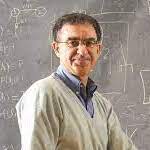
Tomaso A. Poggio, is the Eugene McDermott Professor in MIT’s Department of Brain and Cognitive Sciences and the director of the NSF Center for Brains, Minds and Machines at MIT. He is a founding member of the McGovern Institute as well as a member of the Computer Science and Artificial Intelligence Laboratory. A former Corporate Fellow of Thinking Machines Corporation, a former director of PHZ Capital Partners, Inc. and of Mobileye, he was involved in starting, or investing in several other high tech companies including Arris Pharmaceutical, nFX, Imagen, Digital Persona, Deep Mind and Orcam. He is one of the most cited computational scientists and has mentored PhD students and postdocs that are some of the today’s leaders in the science and engineering of intelligence.
Human Face Recognition: Designing Artificial Models from Biological Deep Networks
Massimo Tistarelli (University of Sassari)
Abstract
Massimo Tistarelli’s Short Bio
Massimo Tistarelli received the Phd in Computer Science and Robotics in 1991 from the University of Genoa. He is Full Professor in Computer Science (with tenure) and director of the Computer Vision Laboratory at the University of Sassari, Italy. Since 1986 he has been involved as project coordinator and task manager in several projects on computer vision and biometrics funded by the European Community. Since 1994 he has been the director of the Computer Vision Laboratory at the Department of Communication, Computer and Systems Science of the University of Genoa, and now at the University of Sassari, leading several National and European projects on computer vision applications and image-based biometrics. Prof. Tistarelli is a founding member of the Biosecure Foundation, which includes all major European research centers working in biometrics. His main research interests cover biological and artificial vision (particularly in the area of recognition, three-dimensional reconstruction and dynamic scene analysis), pattern recognition, biometrics, visual sensors, robotic navigation and visuo-motor coordination. He is one of the world-recognized leading researchers in the area of biometrics, especially in the field of face recognition and multimodal fusion. He is coauthor of more than 150 scientific papers in peer reviewed books, conferences and international journals. He is the principal editor for the Springer books “Handbook of Remote Biometrics” and “Handbook of Biometrics for Forensic Science”. Prof. Tistarelli organized and chaired several world-recognized several scientific events and conferences in the area of Computer Vision and Biometrics, and he has been associate editor for several scientific journals including IEEE Transactions on PAMI, IET Biometrics, Image and Vision Computing and Pattern
Recognition Letters. Since 2003 he is the founding director for the Int.l Summer School on Biometrics (now at the 19th edition – http://biometrics.uniss.it). He served as vice president of the IEEE Biometrics Council, first vice president of the IAPR and chair of the IAPR Fellow committee. He is a Fellow member of the IAPR and Senior member
of the IEEE.
Recognition Letters. Since 2003 he is the founding director for the Int.l Summer School on Biometrics (now at the 19th edition – http://biometrics.uniss.it). He served as vice president of the IEEE Biometrics Council, first vice president of the IAPR and chair of the IAPR Fellow committee. He is a Fellow member of the IAPR and Senior member
of the IEEE.
